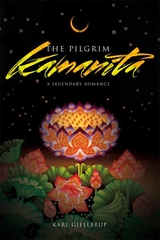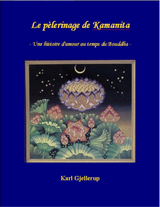THE BOOK YOU ARE VIEWING HERE is the eBook of the second print edition of The Pilgrim Kāmanīta – a Legendary Romance, published in 2017. The text of the story is largely unchanged from the 1999 and the 2008 editions, although – poetic licence of the author notwithstanding – a few more factual errors have been corrected. There have also been a few additions and amendations to the Notes and References since, over the years, more of the author’s sources have become apparent.
Another significant addition to the book has come through the editor having received a copy of the 1995 Boiselle-Löhmann Verlag edition of Der Pilger Kamanita – a photo-reproduction of the original work in German. This edition valuably contained the substantial Note on the text by the author, Karl Gjellerup, which the Thai edition we had been working from had omitted. This Note adds some fresh insight into the chemistry of the tale’s ripening in the commodious brew-pot of the author’s imagination, we are thus very glad to be able to include it here.



